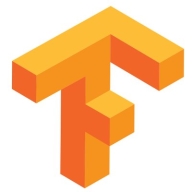

Microsoft Azure Machine Learning Studio and TensorFlow are two platforms in the data science and AI development category. Azure Machine Learning Studio has the upper hand in ease of use, particularly for users within the Azure ecosystem, whereas TensorFlow stands out in deep learning capabilities and community support.
Features: Azure Machine Learning Studio offers a user-friendly drag-and-drop interface, integration options for R and Python, and scalability within the Azure ecosystem, making it accessible to users without deep programming knowledge. TensorFlow is renowned for its robust open-source framework, GPU acceleration for deep learning, and expansive community support, proving advantageous for sophisticated AI model development.
Room for Improvement: Azure Machine Learning Studio could enhance its machine learning algorithm offerings, data cleaning processes, and integration with non-Microsoft platforms. Improvements in documentation and pricing models would benefit users. TensorFlow could improve CPU optimization, address version mismatches, and provide better integration options for JavaScript developers to enhance machine learning capabilities in web applications.
Ease of Deployment and Customer Service: Azure Machine Learning Studio supports Public Cloud deployments, making resource scaling efficient. The customer service is generally well-regarded, with varying quality based on subscription levels. TensorFlow's flexibility is reflected in its support across on-premises and hybrid cloud environments. It benefits from extensive documentation and community support, although dedicated support requires payment.
Pricing and ROI: Azure Machine Learning Studio operates on a pay-per-use model, potentially leading to high costs based on resource usage. Its pricing tiers offer flexibility but can be complex. TensorFlow, as a free open-source platform, facilitates widespread experimentation and deployment without cost barriers, particularly beneficial in educational and research contexts.
| Product | Market Share (%) |
|---|---|
| Microsoft Azure Machine Learning Studio | 3.5% |
| TensorFlow | 5.4% |
| Other | 91.1% |
| Company Size | Count |
|---|---|
| Small Business | 23 |
| Midsize Enterprise | 6 |
| Large Enterprise | 30 |
| Company Size | Count |
|---|---|
| Small Business | 12 |
| Midsize Enterprise | 3 |
| Large Enterprise | 3 |
Azure Machine Learning is a cloud predictive analytics service that makes it possible to quickly create and deploy predictive models as analytics solutions.
It has everything you need to create complete predictive analytics solutions in the cloud, from a large algorithm library, to a studio for building models, to an easy way to deploy your model as a web service. Quickly create, test, operationalize, and manage predictive models.
Microsoft Azure Machine Learning Will Help You:
With Microsoft Azure Machine Learning You Can:
Microsoft Azure Machine Learning Features:
Microsoft Azure Machine Learning Benefits:
Reviews from Real Users:
"The ability to do the templating and be able to transfer it so that I can easily do multiple types of models and data mining is a valuable aspect of this solution. You only have to set up the flows, the templates, and the data once and then you can make modifications and test different segmentations throughout.” - Channing S.l, Owner at Channing Stowell Associates
"The most valuable feature is the knowledge bank, which allows us to ask questions and the AI will automatically pull the pre-prescribed responses.” - Chris P., Tech Lead at a tech services company
"The UI is very user-friendly and the AI is easy to use.” - Mikayil B., CRM Consultant at a computer software company
"The solution is very fast and simple for a data science solution.” - Omar A., Big Data & Cloud Manager at a tech services company
TensorFlow is an open source software library for high performance numerical computation. Its flexible architecture allows easy deployment of computation across a variety of platforms (CPUs, GPUs, TPUs), and from desktops to clusters of servers to mobile and edge devices. Originally developed by researchers and engineers from the Google Brain team within Google’s AI organization, it comes with strong support for machine learning and deep learning and the flexible numerical computation core is used across many other scientific domains.
We monitor all AI Development Platforms reviews to prevent fraudulent reviews and keep review quality high. We do not post reviews by company employees or direct competitors. We validate each review for authenticity via cross-reference with LinkedIn, and personal follow-up with the reviewer when necessary.